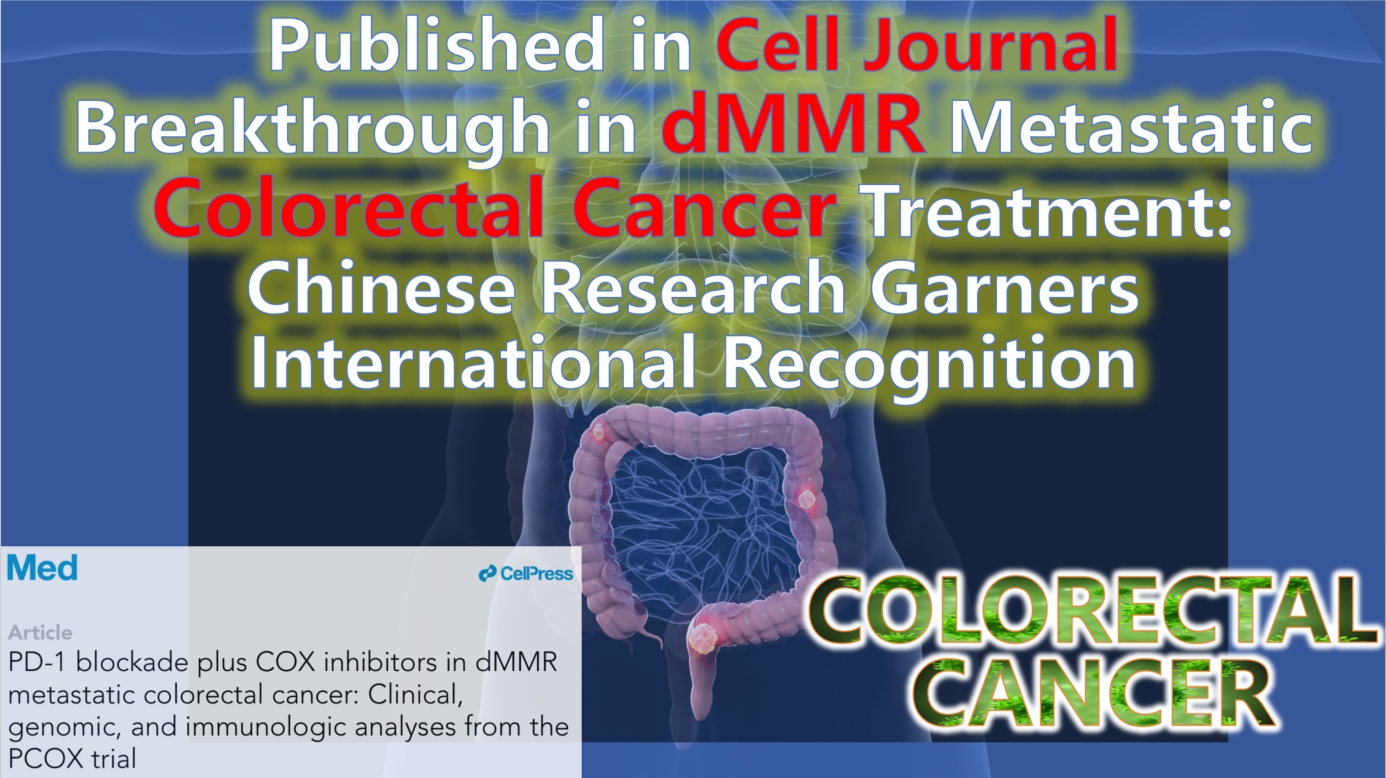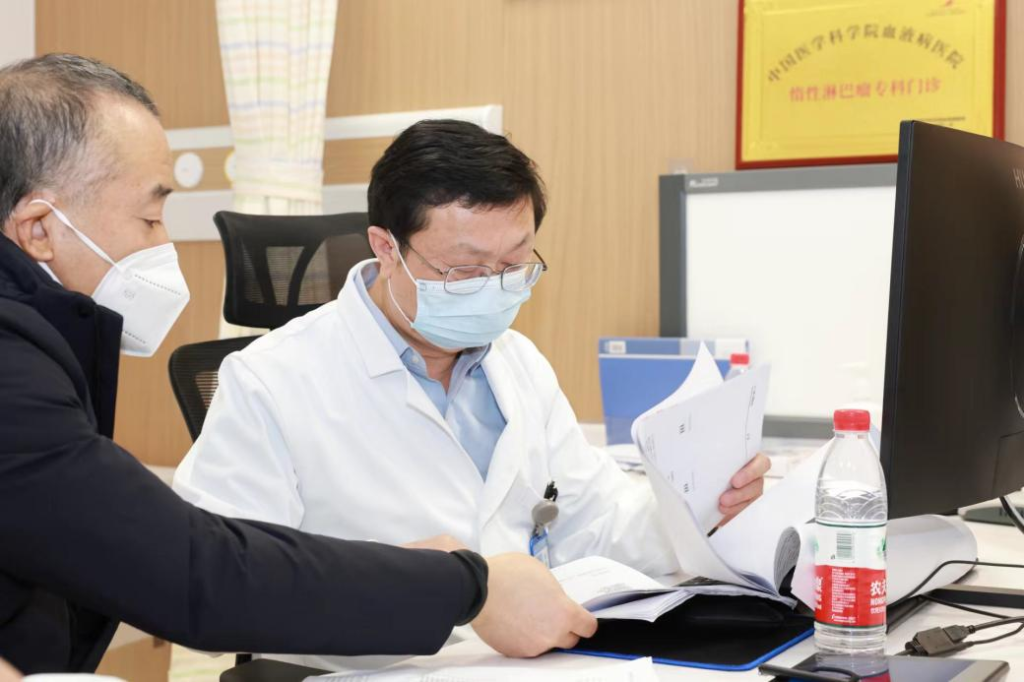Warning: Trying to access array offset on value of type bool in /www/wwwroot/www.medtourcn.com/wp-content/themes/medical-directory/framework/theme/medicaldirectory-image.php on line 78
Warning: Trying to access array offset on value of type bool in /www/wwwroot/www.medtourcn.com/wp-content/themes/medical-directory/framework/theme/medicaldirectory-image.php on line 79

Why Does China Have a Unique Advantage in the Field of CAR-T Therapy?
**Why Does China Have a Unique Advantage in the Field of CAR-T Therapy?**

CAR-T
#CAR_Therapy #CancerTreatment #MedicalInnovation #ChinaMedical
In recent years, China has made rapid advancements in medical technology, particularly in the area of CAR-T (Chimeric Antigen Receptor T-cell) therapy. This cutting-edge cancer treatment involves reprogramming a patient’s own T cells to recognize and attack cancer cells. This revolutionary therapy has transformed treatment options for various malignancies, with China’s innovations and applications standing out globally.
### 1. **Scientific Innovation and Technological Breakthroughs**
China has reached a world-leading level in CAR-T research and development. Numerous prestigious medical schools and research institutions in China have actively contributed to this field, leading to the creation of several novel CAR-T treatment methods. Chinese scientists have pioneered significant innovations in CAR-T cell engineering, toxicity control, and target selection. For example, the CD19 CAR-T therapy for hematologic malignancies is widely used in China. Additionally, the fully human BCMA-targeted CAR-T product, Equecabtagene Autoleucel, used for multiple myeloma, has achieved a complete remission (CR) rate of 82.4%. Recently, *Nature* featured China’s breakthrough in using universal CAR-T for autoimmune diseases. New CAR-T therapies targeting solid tumors are also progressing rapidly.
### 2. **Cost-Effectiveness and Extensive Clinical Application**
Compared to some Western countries, CAR-T therapy in China is more affordable, partially due to lower production and R&D costs. A surge of local pharmaceutical and biotech companies has emerged, promoting the domestic production of CAR-T products and reducing reliance on imported drugs. This efficient supply chain management has not only lowered treatment costs but also made the personalized therapy more accessible to patients. While CAR-T therapy in the U.S. can cost $700,000–$800,000, the cost in China is about one-fifth to one-seventh of that.
Moreover, the faster approval process for clinical trials in China enables researchers to quickly bring new therapies to market, allowing patients earlier access to innovative treatments. This efficiency is supported by streamlined regulatory frameworks and healthcare reforms.
### 3. **Government Policy Support and International Collaboration**
The Chinese government has implemented various policies to strongly support biomedical innovation, including the development and application of CAR-T technology. For example, the National Medical Products Administration (NMPA) has accelerated the approval process for CAR-T therapies, simplifying regulatory procedures, and encouraging international cooperation and technology transfer. Many international pharmaceutical giants have partnered with Chinese companies to jointly advance CAR-T therapy research and commercialization. This openness has established China as a key global center for CAR-T treatment.
### 4. **Large Patient Population Driving Research and Application**
As the most populous country, China has a vast cancer patient population, providing abundant clinical cases and research resources for the application and further optimization of CAR-T therapy. This large patient base allows China to conduct large-scale clinical trials in a short time, accelerating the validation of treatment effectiveness and maturity. In China, not only are there local consensus guidelines for CAR-T usage, but each physician applying CAR-T has significant experience in both initial treatments and post-therapy management.
### 5. **Interdisciplinary Collaboration and Development**
China’s advancements in cellular immunotherapy are not solely dependent on progress in medical fields but are also supported by the integration of interdisciplinary technologies such as artificial intelligence, gene editing, and materials science. For instance, AI is increasingly playing a role in optimizing and personalizing CAR-T therapy designs. Gene editing tools like CRISPR are also widely applied in China for designing CAR-T cells, making them more precise and effective.
### Conclusion
China’s unique advantages in CAR-T therapy stem from continuous scientific breakthroughs, lower treatment costs, strong government support, and a vast patient base. As technology advances and international collaborations deepen, China is poised to play an increasingly important role in the global fight against cancer. CAR-T therapy offers new hope to cancer patients, and China’s innovation and strength are helping bring this hope to fruition sooner.
This is not just China’s advantage; it is a blessing for cancer patients worldwide.
🎉🎉To assess whether the condition is suitable for clinic therapy, you can submit Advanced Medicine in China for preliminary evaluation!
WhatsApp: +8613717959070
Https://wa.me/+8613717959070
Email: doctor.huang@globecancer.com
#ChimericAntigenReceptor #CancerResearch #Immunotherapy #ChinaMedicalAdvancements #Biotech #GeneTherapy #CellTherapy #HealthcareRevolution #CancerCare #AIinHealthcare #PrecisionMedicine #GlobalHealth
Warning: Trying to access array offset on value of type bool in /www/wwwroot/www.medtourcn.com/wp-content/themes/medical-directory/framework/theme/medicaldirectory-image.php on line 78
Warning: Trying to access array offset on value of type bool in /www/wwwroot/www.medtourcn.com/wp-content/themes/medical-directory/framework/theme/medicaldirectory-image.php on line 79

Why More and More Foreigners Are Choosing China for CAR-T Cell Therapy
**Why More and More Foreigners Are Choosing China for CAR-T Cell Therapy**

CAR-T
In recent years, China’s advancements in cell therapy, particularly CAR-T therapy, have been remarkable, attracting numerous international patients seeking treatment. With its cutting-edge technology, reasonable costs, and outstanding efficacy, China has become a preferred destination for cancer patients worldwide. Today, we will explore why an increasing number of foreign patients choose to come to China for cell therapy.
**The Rise of CAR-T Therapy: China’s Advantages**
First, CAR-T therapy is a personalized immunotherapy that specifically targets blood-related cancers such as lymphoma, multiple myeloma, and leukemia. By engineering a patient’s own T-cells to recognize and attack cancer cells, CAR-T therapy has shown significant efficacy, especially in patients with advanced cancer.
China’s advantages in cell therapy can be summarized into three key points:
-
**Technological Expertise**: China has accumulated extensive experience in CAR-T therapy, particularly in top hospitals in major cities like Shanghai and Beijing. These institutions boast world-class medical teams and advanced treatment systems, providing international patients with high-quality treatment plans that ensure global leading outcomes.
-
**Affordable Costs**: While CAR-T therapy can cost millions of dollars in countries like the U.S. and Europe, the treatment in China is much more affordable, usually about one-seventh to one-tenth of the cost in the U.S. This affordability makes China an attractive option for many international patients.
-
**Shorter Waiting Times**: In Western countries, patients often wait several months for CAR-T therapy, whereas in China, many hospitals can complete the entire process — from diagnosis to cell infusion — in just a few weeks. This is crucial for patients with urgent medical needs.
**Real-Life Cases: Why Foreign Patients Choose China**
Several real-life cases clearly demonstrate why international patients are increasingly seeking treatment in China.
– **Ethan from Singapore**
Ethan had been battling cancer for nearly ten years, trying various treatments globally with little success. Eventually, he decided to seek treatment in China. After a thorough evaluation at Jiahui International Hospital in Shanghai, Ethan received a personalized CAR-T therapy plan. Within just four weeks, his cancer cells had significantly decreased, and his health began to improve, along with his weight. Ethan remarked, “The treatment in China is not only effective but also much more affordable than in Singapore.”
– **A Russian Patient’s Story**
Borzinkov, a 70-year-old patient with high-risk advanced multiple myeloma, had experienced multiple treatment failures before learning about China’s CAR-T therapy. He traveled to China for treatment, successfully completed cell collection, and received CAR-T infusion. Just 13 days later, he was discharged, and his follow-up results have been very promising. He chose China not only for the lower costs but also because of the shorter waiting time.
These cases illustrate that international patients in China can receive high-quality, effective treatment at more affordable rates and with faster recovery times. So far, patients from countries like Russia, Singapore, Malaysia, and others have undergone CAR-T therapy in China and achieved significant results, with many experiencing complete remission within months, with no signs of cancer after treatment.
**China’s Leading Position and Future Prospects**
China has already established itself as a global leader in CAR-T therapy, accounting for over 50% of the world’s clinical trials in this field. Chinese researchers and doctors excel not only in the basic research and clinical applications of CAR-T therapy but also in managing side effects such as CRS and neurotoxicity.
In cities like Shanghai, Wuhan, and Beijing, doctors provide cutting-edge treatment to international patients daily, consistently delivering excellent outcomes. As China’s medical system continues to advance, more and more international patients are choosing China as their destination for treatment.
**Conclusion**
The reasons why foreign patients are choosing China for cell therapy are clear: China excels in technology, offers reasonable treatment costs, and delivers outstanding results. As the world becomes more aware of the progress in China’s healthcare system, more patients will seek advanced medical care in China. In particular, China’s breakthroughs in cell therapy will continue to attract cancer patients from across the globe.
🎉🎉To assess whether the condition is suitable for CAR-T or clinic therapy, you can contact us for preliminary evaluation!
WhatsApp: +8613717959070
Https://wa.me/+8613717959070
Email: doctor.huang@globecancer.com
#CARtherapy #CellTherapy #CancerTreatment #Immunotherapy #HealthcareInnovation #MedicalTourism #ChinaHealthcare #CancerSurvivor #PatientStories #MedicalAdvancements #AffordableHealthcare #PersonalizedMedicine #GlobalHealth #HealthJourney #Oncology #CAR-T
Warning: Trying to access array offset on value of type bool in /www/wwwroot/www.medtourcn.com/wp-content/themes/medical-directory/framework/theme/medicaldirectory-image.php on line 78
Warning: Trying to access array offset on value of type bool in /www/wwwroot/www.medtourcn.com/wp-content/themes/medical-directory/framework/theme/medicaldirectory-image.php on line 79

Published in Cell Journal | Breakthrough in dMMR Metastatic Colorectal Cancer Treatment: Chinese Research Garners International Recognition
**Published in Cell Journal | Breakthrough in dMMR Metastatic Colorectal Cancer Treatment: Chinese Research Garners International Recognition**

Colorectal Cancer
#ColorectalCancer #PD1Antibody #dMMR #cell #cellpress #Med #PD-1 #CellJournal
A Chinese medical team has made a significant breakthrough in the treatment of dMMR (deficient mismatch repair) metastatic colorectal cancer. Recently, their latest research findings were published in the *Med* journal, a subsidiary of *Cell*, offering new treatment hope for patients with advanced colorectal cancer.
The study revealed that the combination of PD-1 antibody immunotherapy with COX inhibitors, drugs commonly used for anti-inflammatory treatment, significantly improved treatment effectiveness. This innovative strategy could substantially increase survival chances for patients with advanced colorectal cancer.
Colorectal cancer is the second most common cancer in China, and its incidence is on the rise. While PD-1 antibody immunotherapy has brought hope to some patients, its success rate is only 45%. Approximately 30% of dMMR metastatic colorectal cancer patients are resistant to PD-1 treatment. Therefore, the Chinese team explored combining PD-1 immunotherapy with COX inhibitors (such as celecoxib and aspirin) to overcome this resistance.
The team’s Phase 2 clinical trial yielded remarkable results. Among the 30 patients who received the combination therapy, the overall response rate was 73.3%, a 30% improvement over PD-1 monotherapy. After more than four years of follow-up, 65% of patients achieved progression-free survival, and 90% were still alive. Four patients reached complete remission, while 11 others underwent surgery, with 10 showing complete pathological remission.
In addition to the notable clinical outcomes, genomic and immunological analysis revealed that high expression of the TAPBP protein was associated with better treatment results. This discovery opens new avenues for the development of biomarkers to predict treatment response and for personalized treatment plans in the future.
Following the publication of the study, it attracted significant attention from the international medical community. Experts from Memorial Sloan Kettering Cancer Center in the U.S. wrote a commentary in the *Med* journal, highly praising the innovative therapy. They noted that the combination of COX inhibitors with PD-1 treatment not only increased the complete remission rate but also reduced immune suppression signals in the tumor microenvironment, enhancing the effectiveness of PD-1 therapy, with manageable side effects.
This research offers new hope for dMMR metastatic colorectal cancer patients worldwide, and further large-scale clinical trials are expected to confirm its efficacy. The combination of COX inhibitors with PD-1 immunotherapy could become a safe and effective treatment option for dMMR metastatic colorectal cancer patients, providing hope for long-term survival.
🎉🎉To assess whether the condition is suitable for CAR-T or clinic therapy, you can submit Advanced Medicine in China for preliminary evaluation!
WhatsApp: +8613717959070
(Https://wa.me/+8613717959070)
Email: doctor.huang@globecancer.com
#CancerResearch #MedicalInnovation #GlobalHealth #Immunotherapy #Colorectal #COXInhibitors
Warning: Trying to access array offset on value of type bool in /www/wwwroot/www.medtourcn.com/wp-content/themes/medical-directory/framework/theme/medicaldirectory-image.php on line 78
Warning: Trying to access array offset on value of type bool in /www/wwwroot/www.medtourcn.com/wp-content/themes/medical-directory/framework/theme/medicaldirectory-image.php on line 79

One Year After Approval: How Effective is China’s First BCMA-Targeted CAR-T Therapy in Treating Multiple Myeloma?
### One Year After Approval: How Effective is China’s First BCMA-Targeted CAR-T Therapy in Treating Multiple Myeloma?

Multiple Myeloma
